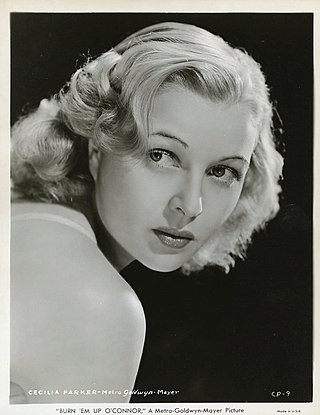The year 1939 in film is widely considered the greatest year in film history. The ten films nominated for Best Picture at the 12th Academy Awards —Dark Victory, Gone with the Wind, Goodbye, Mr. Chips, Love Affair, Mr. Smith Goes to Washington, Ninotchka, Of Mice and Men, Stagecoach, The Wizard of Oz, and Wuthering Heights—range in genre and are considered classics.
The following is an overview of 1930 in film, including significant events, a list of films released and notable births and deaths.

Drexel Jerome Lewis Bixby was an American short story writer and scriptwriter. He wrote the 1953 story "It's a Good Life", which was included in The Science Fiction Hall of Fame. It formed the basis of a 1961 episode of The Twilight Zone and was remade in Twilight Zone: The Movie (1983). He wrote four episodes for the Star Trek series: "Mirror, Mirror", "Day of the Dove", "Requiem for Methuselah", and "By Any Other Name". With Otto Klement, he co-wrote the story upon which the science fiction movie Fantastic Voyage (1966), the related television series, and the related Isaac Asimov novel were based. Bixby's final produced or published work so far was the screenplay for the 2007 science fiction film The Man from Earth.

The Naked City is a 1948 American crime procedural produced by Mark Hellinger, directed by Jules Dassin, written by Albert Maltz and Malvin Wald. Starring Barry Fitzgerald, with Howard Duff, Dorothy Hart and Don Taylor in support, the film depicts the police investigation that follows the murder of a young model. It was shot almost entirely on location in New York City.

Jean Parker was an American film and stage actress. A native of Montana, indigent during the Great Depression, she was adopted by a family in Pasadena, California, at age ten. She initially aspired to be an illustrator and artist, but was discovered at age 16 by Metro-Goldwyn-Mayer executive Louis B. Mayer after a photograph of her was published in a Los Angeles newspaper when she won a poster contest.

Robert Lowery was an American motion picture, television, and stage actor who appeared in more than 70 films. He was the second actor to play Batman, appearing as the character in the 1949 film serial Batman and Robin.

In Society is a 1944 film starring the comedy team of Abbott and Costello. It was the first of five Abbott and Costello films to be directed by Jean Yarbrough. It was re-released in 1953.

Limehouse Blues is a 1934 American crime film, directed by Alexander Hall. The film is set in the Limehouse district in the East End of London and its Chinatown. Among the stars of the film were George Raft and Anna May Wong. The film is named after the song "Limehouse Blues".

Mystery of the River Boat is a 1944 Universal movie serial directed by Lewis D. Collins and Ray Taylor. It co-starred Lyle Talbot, Robert Lowery and Mantan Moreland.

Cecilia Parker was a Canadian-American film actress. She was best known for portraying Marian Hardy, the sister of Andy Hardy, in twelve films of the Andy Hardy series.

Alfred Hitchcock Presents, sometimes called The New Alfred Hitchcock Presents, is an American television anthology series that originally aired on NBC for one season from September 29, 1985 to May 4, 1986, and on the USA Network for three more seasons, from January 24, 1987, to July 22, 1989, with a total of four seasons consisting of 76 episodes. The series is an updated version of the 1955 eponymous series.

William Horatio Powell was an American actor, known primarily for his film career. Under contract with Metro-Goldwyn-Mayer, he was paired with Myrna Loy in 14 films, including the Thin Man series based on the Nick and Nora Charles characters created by Dashiell Hammett. Powell was nominated for the Academy Award for Best Actor three times: for The Thin Man (1934), My Man Godfrey (1936), and Life with Father (1947).

Sacagawea was a Lemhi Shoshone woman who, in her teens, helped the Lewis and Clark Expedition in achieving their chartered mission objectives by exploring the Louisiana Territory. Sacagawea traveled with the expedition thousands of miles from North Dakota to the Pacific Ocean, helping to establish cultural contacts with Native American people and contributing to the expedition's knowledge of natural history in different regions.
"Stella by Starlight" is a popular jazz standard with music by Victor Young that was drawn from thematic material composed for the main title and soundtrack of the 1944 Paramount Pictures film The Uninvited. Appearing in the film's underscore as well as in source music as an instrumental theme song without lyrics, it was turned over to Ned Washington, who wrote the lyrics for it in 1946.

Davy Crockett was a five-part serial which aired on ABC from 1954–1955 in one-hour episodes, on the Disneyland series. The series starred Fess Parker as real-life frontiersman Davy Crockett and Buddy Ebsen as his friend, George Russell. The first three and last two episodes were respectively edited into the theatrical films Davy Crockett, King of the Wild Frontier and Davy Crockett and the River Pirates (1956). This series and film are known for the catchy theme song, "The Ballad of Davy Crockett".
The following is an index of sociopolitical thinkers listed by the first name.

Masquerade is a 1965 British comedy thriller film directed by Basil Dearden based on the 1954 novel Castle Minerva by Victor Canning. It stars Cliff Robertson and Jack Hawkins and was filmed in the U.K. and in Spain.

Penitentiary is a 1938 American crime film directed by John Brahm starring Walter Connolly, John Howard, Jean Parker and Robert Barrat. It was the second Columbia Pictures film adaptation of the 1929 stage play The Criminal Code by Martin Flavin, after Howard Hawk's The Criminal Code (1930) and followed by Henry Levin's Convicted (1950).
Hello, Annapolis is a 1942 American film. Filming started January 1942.














